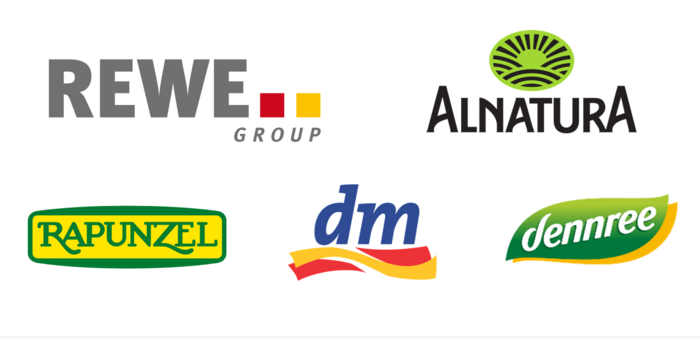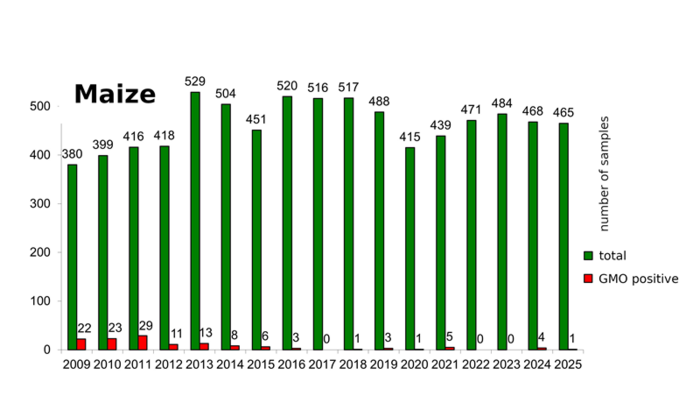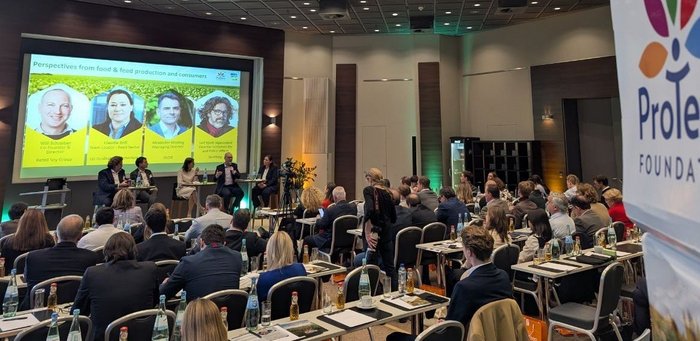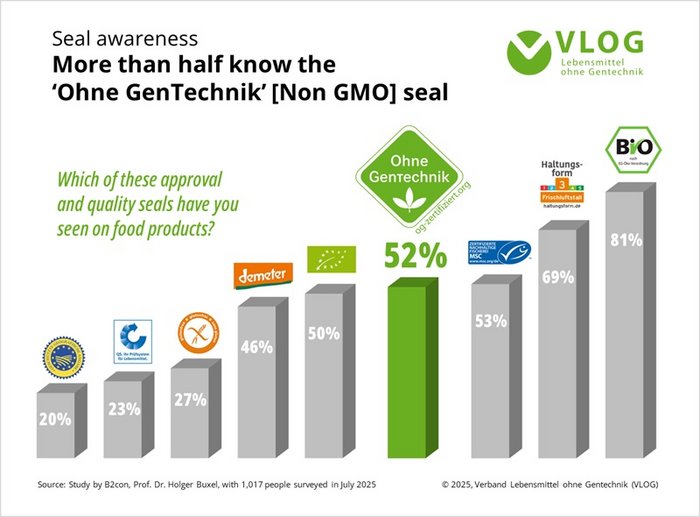News

USA: GMO labelling required also for highly processed food ingredients
A ruling by a U.S. appeals court calls for the extension of mandatory labelling to foods produced with genetically modified (GM) ingredients. Until now, the US Department of Agriculture (USDA) regulation stipulated that foods without detectable genetically modified genetic material did not have to be labelled as genetically modified.
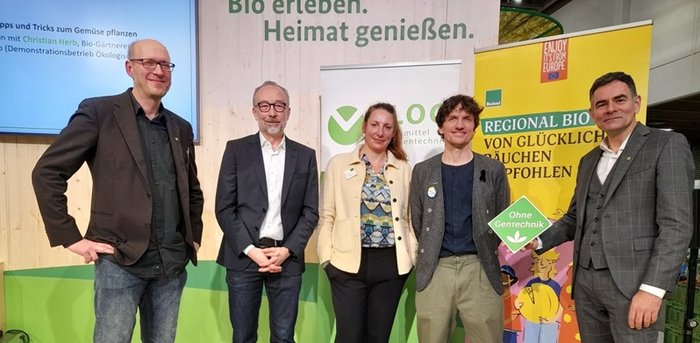
International Green Week: Will "GMO-free" soon only be available with "Ohne Gentechnik" and organic labels?
At a panel debate on the opening day of the International Green Week in Berlin, representatives from VLOG and Bioland, as well as the businesses Alnatura and dennree, warned today against EU plans to deregulate genetic engineering.

International Green Week: "Ohne GenTechnik" campaign enters second round
At the 2026 International Green Week, the second round of the "Do you know what you're eating?" campaign will raise awareness among food fair visitors of the politically topical issue of genetic engineering labelling and the "Ohne GenTechnik" (Non-GMO) seal.

Now it is up to the European Parliament to save GMO labelling
In a trial vote in Brussels, a narrow majority of EU Member States voted in favour of abolishing mandatory GMO labelling and further eroding the regulations for new genetic engineering (NGT). According to reports, Germany abstained from voting.
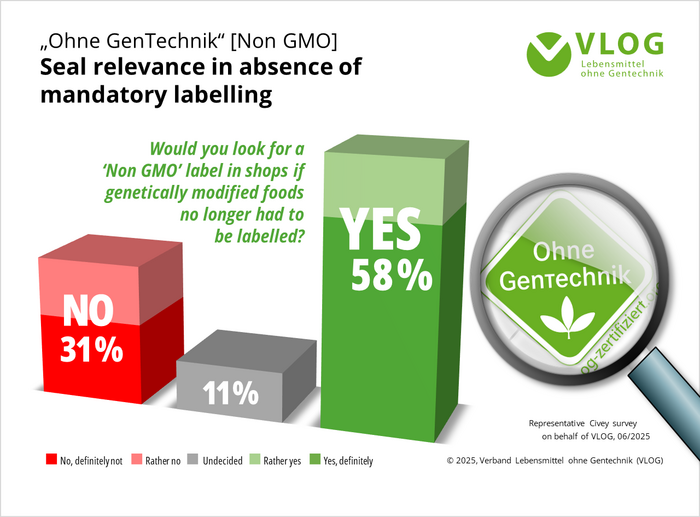
If labelling requirements were abolished: Majority would pay attention to "Ohne Gentechnik" seal
58 percent of consumers in Germany would pay attention to a "Ohne Gentechnik" (Non-GMO) seal when shopping if genetically modified foods no longer had to be labelled in future. This was the result of a representative survey commissioned by VLOG.
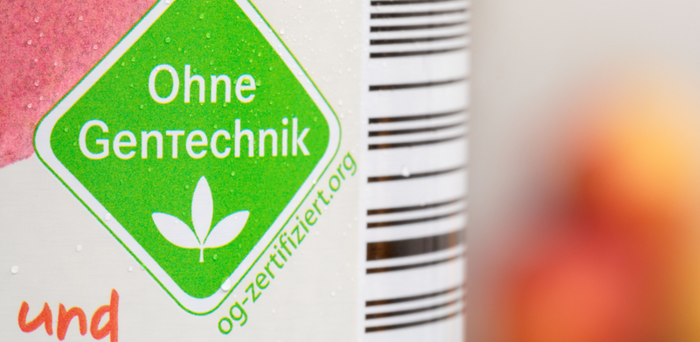
Possible new EU regulations: Will GMO-free products soon be recognisable only by a seal?
If the agreement reached today in Brussels on new genetic engineering (NGT) were actually implemented, GMO-free foods would in the future only be reliably recognisable by an "Ohne GenTechnik" (Non-GMO) or organic seal. However, the European Parliament and Member States can still prevent this.



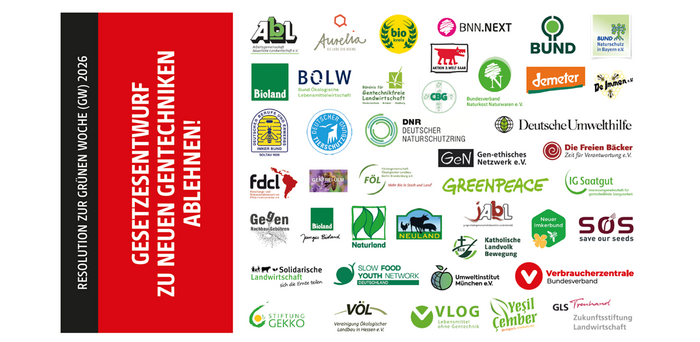
![[Translate to EN:] [Translate to EN:]](/fileadmin/_processed_/f/d/csm_EmpCO_OG-Siegel_Daumen_hoch_d7bdac83ac.jpg)

